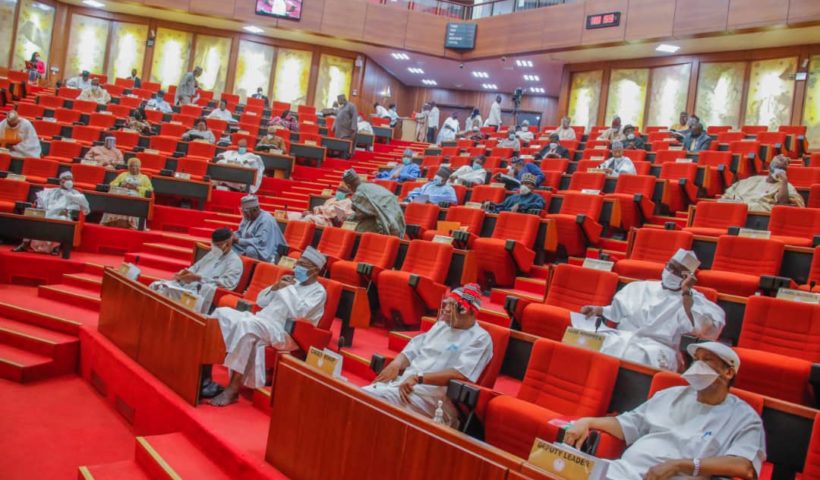The Senate on Wednesday resolved to appeal the judgement of Federal High Court, Umuahia, annulling section 84(12) of the Electoral Act.
The court had on March 18, nullified Section 84(12) of the newly amended Electoral Act, saying it was a violation of the provisions of the Constitution.
The court, in a judgment delivered by Justice Evelyn Anyadike, held that the section “was unconstitutional, invalid, illegal, null, void and of no effect whatsoever”.
Raising a point of order during last week’s plenary, George Sekibo (PDP-Rivers), said the electoral law emanated from the National Assembly, therefore the parliament should be joined as a party in the suit.
“What the judge relied on is not interpretation of the Constitution. The Constitution defines for us who is a civil servant and who is a public servant.
“It does not include political appointees. Moreso, Section four gives us powers to make laws.
“If in the course of doing our job we find Section 84(12) as enshrined in the Electoral Act just assented to is for the good interest of the people, I don’t think somebody should go to court without joining the Senate or the House of Representatives where this law emanated from.
“So if you think it is faulty, you take us to court. We did not know, we were not told they just went there and got a judgement destroying our work over one year.”
He, therefore, moved that the issue be discussed during plenary today (Tuesday) to avoid setting a bad precedence on laws enacted by the federal parliament.
During today’s plenary, Mr Sekibo alongside 80 other lawmakers sponsored the same motion titled: “Urgent need to appeal judgement of the Federal High Court Umuahia on suit no.: FHC/UM/CS/26/2022 on Section 84(12) of the Electoral Act, 2022.”
Mr Sekibo, in his presentation, drew the attention of his colleagues to the judgement of the Federal High Court in Umuahia, Abia State, in a suit marked FHC/MU/SC/26/2022.
The lawmaker observed that the Judge in his ruling said that Section 81(12) of the Electoral Act 2022 was inconsistent with Sections 66(1)(f), 107(1)(f), 137(1)(g) and 182(1)(c) of the 1999 Constitution of the Federal Republic of Nigeria as amended.
He noted further that Section 4(1)(2) and (3) of the 1999 Constitution as amended vested the power of lawmaking for the Federal Republic of Nigeria on the National Assembly.
He argued that in furtherance to the powers vested in the National Assembly, the 1999 Constitution under the roles of the Executive in Item D that deals with political parties in Section 228(a)(b) and (c) confers more powers on the National Assembly, more particularly on political parties and effective management of the electoral process by the Independent National Electoral Commission (INEC).
He noted that the Electoral Act 2022 enacted by the National Assembly followed due process, adding that Section 84(12) of the Act exclusively refers to nomination conventions and congresses called for candidate selection and not participation in the general election which Sections 66(1)(f),137(1)(g) and 182(1)(g) referred to.
According to him, the interpretation of the meaning of the words ‘civil service’ and ‘public service’ in Section 318 was unambiguous, saying, “there’s a difference between the civil service or public service and political appointment.”
He added that, “the Senate of the Federal Republic of Nigeria should show concern on the judgment especially when she was not given opportunity to represent herself in a matter such as this that emanates from her legitimate functions.”
Mr Sekibo warned further that, “letting the judgment go without concern will become a precedence on which any person could go to court and obtain judgment to ridicule the good intentions of the National Assembly as an institution.
The Senate, accordingly, resolved to appeal the judgment in suit FHC/MU/SC/26/2022 for the court to set aside the judgment, noting that same was reached without due consideration of the Constitutional interpretation in Section 318 of the 1999 Constitution as amended.






